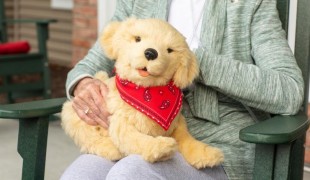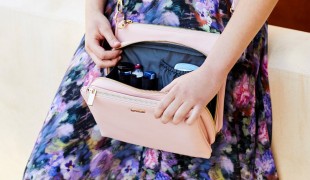- 5597
- 472
- 6
- 6
- 0
- Help Ukraine
About the solution
The inventor was diagnosed with diabetes when she was four. After many years of injections she started using an insulin pump. While her medical health improved, she struggled with the social inconvenience and wearability of the device. During her thesis research, she found her story was similar to many other women and began conceptualizing a way to improve the experience in terms of comfort and confidence.
Current products consist of scarves, neck pieces, and decorative elements that envelop these devices. The goal is to ignite positive conversations and holistically improve health for women with diabetes.
Jessica began Hanky Pancreas at Parsons The New School For Design during her master’s thesis addressing a theme of design, technology and the human condition. Hanky Pancreas evolved from her study of the socio-psychological impact of chronic illness and the social potential of wearable health technologies.
“Hanky Pancreas products strive to better integrate diabetes technology on the body and exist as an intervention to the psychosocial “fashion challenge” of the insulin pump”, explained Jessica.
Adapted from: http://hankypancreas.com/meet-the-designer/
More info: http://jessicafloeh.com/?portfolio=hanky-pancreas
This solution shall not include mention to the use of drugs, chemicals or biologicals (including food); invasive devices; offensive, commercial or inherently dangerous content. This solution was not medically validated. Proceed with caution! If you have any doubts, please consult with a health professional.
DISCLAIMER: This story was written by someone who is not the author of the solution, therefore please be advised that, although it was written with the utmost respect for the innovation and the innovator, there can be some incorrect statements. If you find any errors please contact the patient Innovation team via info@patient-innovation.com
-
-
581
-
0
-
7755

Slacks with zippers on both sides for patients who have to stand up in public
CAREGIVING
(SELF)-CARE: DRESSING: Dressing independently.
Amyotrophic Lateral Sclerosis
Strategy/Tip
Body-Worn solutions (Clothing, accessories, shoes, sensors...)
Tremors
Muscle cramps or spasms
Stiffness or rigidity (difficulty moving)
Muscle weakness
Trouble with fine motor skills (e.g., writing, buttoning clothes)
Sleep disturbances
Numbness or tingling in the extremities
Restoring mobility
Managing pain
Promoting self-management
Managing Neurological Disorders
Promoting inclusivity and social integration
Preventing (Vaccination, Protection, Falls, Research/Mapping)
Caregiving Support
General and Family Medicine
Medical Genetics
Medical Oncology
Neurology
Orthopedics
Physical Medicine and Rehabilitation
Rheumatology
United States
-
-
-
371
-
0
-
4241

Elders get life-like robot pets to help them feel less isolated during the pandemic
CAREGIVING
Social interaction
COMMUNICATION: Communicating, whether by speaking, listening, or other means
Covid19
Assistive Daily Life Device (to help ADL)
Strategy/Tip
Sore throat
Fever
Fatigue
Difficulty breathing deeply
Nasal congestion
Dry cough
Sinus pain or pressure.
Shortness of breath
Promoting self-management
Building Supportive Community Relationships
Promoting inclusivity and social integration
Enhancing Mental Health
General and Family Medicine
Infectious Diseases
Pneumology
Psychiatry
United States
-
-
-
531
-
0
-
9399

Diabetic creates diabetes bags and accessories
Social interaction
diabetes type 1
diabetes type 2
Body-Worn solutions (Clothing, accessories, shoes, sensors...)
Muscle weakness
Excessive thirst or hunger
Increased urination
Dry skin
Fatigue
Weight gain
Promoting self-management
Promoting inclusivity and social integration
Endocrinology
General and Family Medicine
United States
-
 en
en